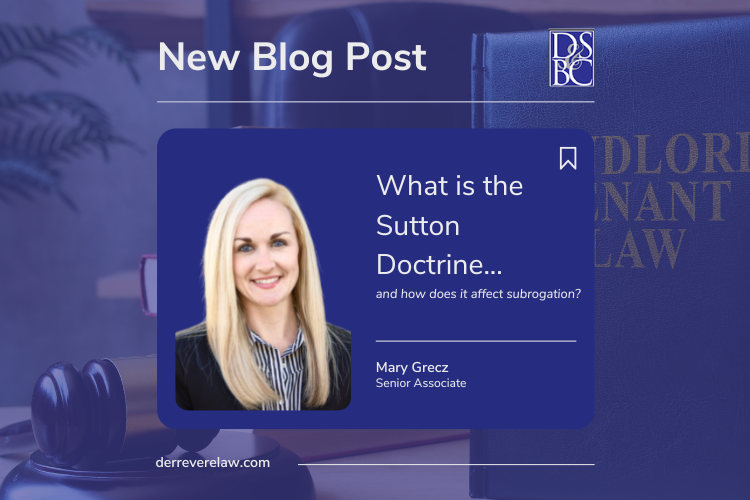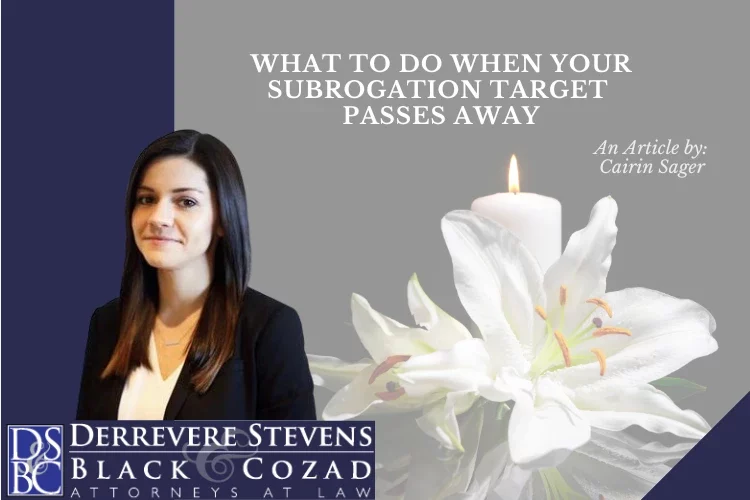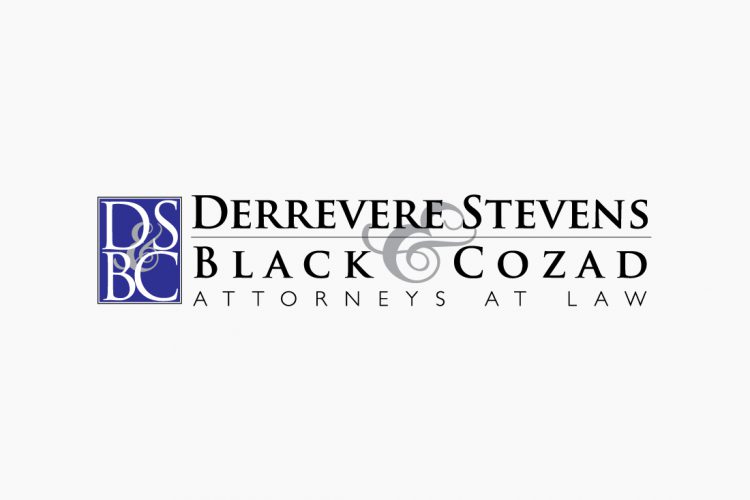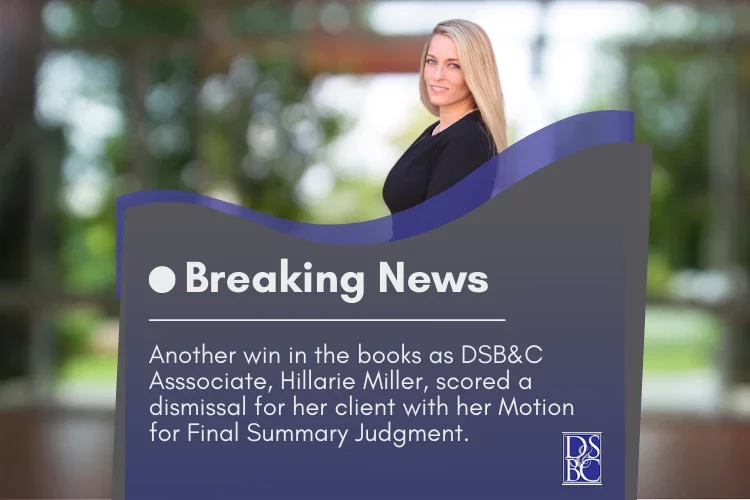March 6, 2023
What Is the Sutton Doctrine and How Does It Affect Subrogation?
Senior Associate Mary Grecz explains the Sutton Doctrine and how it affects subrogation.
January 23, 2023
What to Do When Your Subrogation Target Passes Away
Subrogation is the right of an insurance company to be repaid the money they spent on an injured policyholder while their personal injury claim was pending. Find out how to proceed when your subrogation target passes away.
January 10, 2023
Letters of Protection: Effective “I Owe Yous” or Evidence of Failure to Mitigate Damages
Learn about the advantages and disadvantages of a Letter of Protection from the legal experts at DSB&C.
November 21, 2022
Subrogation – It’s Not Just a Funny Word
Subrogation is a product of justice. DSBC attorney Jessica Mehaylo breaks down the word, its meaning, its origin, and most importantly, how it applies to you.
November 7, 2022
Foreign Judgments Ruled Stage-5 Clingers in Mass. Courts
The Massachusetts Appeals Court recently clarified how judgments from foreign jurisdictions can be enforced against assets located in Massachusetts.
October 26, 2022
Bryan Black Named Top Construction Law Lawyer in Palm Beach County
We are proud to announce that Derrevere, Stevens, Black & Cozad partner Bryan W. Black has been named as a top construction law attorney in Palm Beach County!
October 12, 2022
Learning to Love Massachusetts Superior Court Rule 9A (Pt. II – Summary Judgment)
Massachusetts Superior Court Rule 9A is often the bane of many attorneys due to its length, complexity, and specificity. This blog post is a guide to filing/serving Summary Judgment Motions in the Superior Court.
September 21, 2022
Federal Court News – Florida Southern District Court
The lawyers at DSBC keep abreast of changes in Federal law to protect our clients’ interest in all aspects of litigation. Knowledge and compliance with the Rules leads to best practices and optimal client outcome.
July 1, 2022
Bryan Black Successfully Defends Client in Million Dollar Arbitration Claim
DSB&C Partner, Bryan Black, successfully defends his client in a million dollar arbitration claim.
June 9, 2022
Hillarie Miller Scores Another Dismissal via Motion for Summary Judgment
Another win in the books as DSB&C Associate, Hillarie Miller, scored a dismissal for her client with her Motion for Final Summary Judgment.









